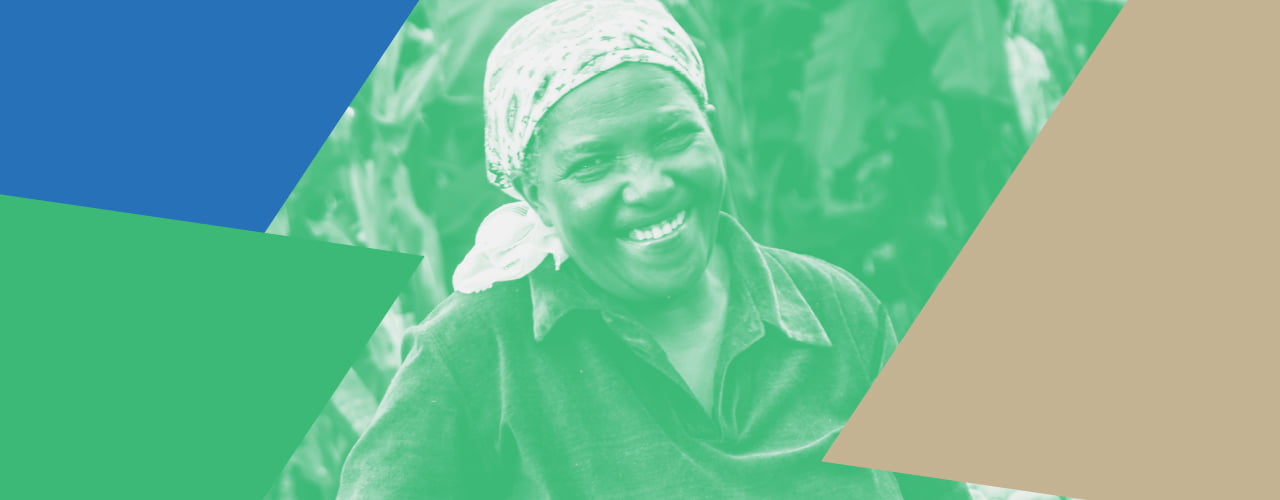
EEP Africa Annual Report 2020 Showcases Results in a Challenging Year
EEP Africa celebrated its 10th anniversary with a growing portfolio, flexible financing for clean energy companies during a turbulent year, and a strengthened focus on building an inclusive energy sector. Read our Annual Report 2020.
2020 was a challenging year for all of us and early stage clean energy companies are no exception. Such times call for added flexibility and creativity from financiers and entrepreneurs. NDF has been impressed by the exceptional results and progress demonstrated by EEP Africa and its portfolio companies in 2020. – Leena Klossner, Deputy Managing Director, Nordic Development Fund
EEP Africa expanded its active portfolio in 2020, awarding EUR 8.3 million to 26 companies through an EEP Innovation window call for proposals that focused on productive use of energy and circular economy. Another EUR 1.5 million was awarded in the first loan signed under the new EEP Catalyst debt financing window. At the same time, EEP Africa supported its existing grantees with flexible disbursements and technical support to revise their business plan and adjust to the market upheavals caused by Covid-19.
I am delighted to see more and more creative instruments being initiated. EEP Africa, among others, is filling the gap for financing high-risk transactions and significantly contributing to SDG 7. – Cornelia Schenk, Advisor on Sustainable Energy, Austrian Development Agency
During 2020, EEP Africa also strengthened its investment and knowledge partnerships. As an early-stage investor enabling companies to achieve proof of concept, EEP Africa aims to improve the investment readiness of its grantees and facilitate linkages with the investor community. In 2020, investments in private sector development were catalysed through a virtual Clean Energy Investment Forum, co-organised with GET.invest, and more tailored matchmaking services.
Partnerships in the sector create a more robust pipeline for follow-on investors. Especially in a year like this, it is critical to build new connections between investors and companies in order to maintain progress towards a more diverse and sustainable clean energy sector. – Jussi Viding, EEP Africa Fund Manager, NDF
The Fund also analyses lessons learned within its portfolio to provide insights to the broader sector through knowledge sharing events and publications. The flagship publication in 2020 was Energising Resilience, a study of climate adaptation and resilience co-benefits achieved by clean energy projects. This report, along with the new projects in our portfolio working at the nexus of energy, agricultural productivity and climate, will add to the global dialogue in the build-up towards COP26 in Glasgow later this year.
Climate change mitigation and adaptation are high priorities in Finnish foreign policy. It is clear that EEP Africa will remain very relevant for us in coming years. We also seek to welcome other donors on board to help meet the substantial demand for early-stage financing and business support. – Jan Wahlberg, Ambassador for Climate Change, Ministry for Foreign Affairs of Finland
An impact evaluation of the Fund conducted during 2020 confirmed that EEP Africa’s core value-added is its willingness to take risks on early-stage businesses and unproven models. It also highlighted the need for the Fund to keep adapting to maintain its relevance in the sector. This adaptation can be seen in the Fund’s new EEP Catalyst financing window, its increased focus on supporting local and women-led companies, and its recognition of next generation talent through the creation of a new Rising Energy Leaders award.
Heading into its second decade of operations, EEP Africa is more committed than ever to ensuring that the world builds back better and greener and that the clean energy transition leaves no one behind.
Read more about our portfolio and activities in the EEP Africa Trust Fund Annual Report 2020.
EEP Africa is a clean energy financing facility hosted and managed by the Nordic Development Fund. It is currently funded by the Austrian Development Agency, Ministry for Foreign Affairs of Finland, and NDF.


